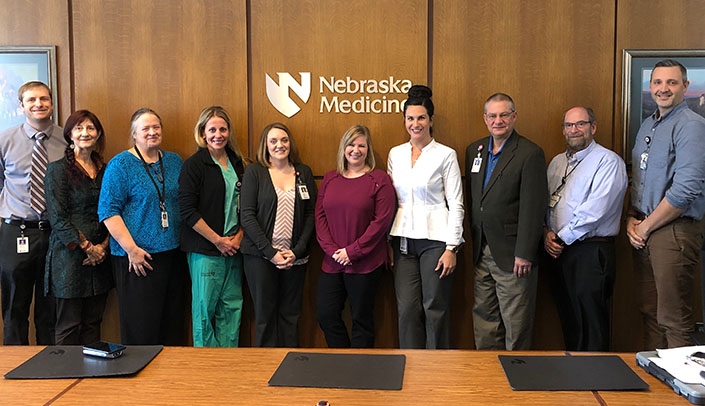As health care workers, we sometimes encounter patients whose care is complex, complicated or problematic. To assist during these times, the Office of Healthcare Ethics and the Healthcare Ethics Committee can provide support to staff, patients and their families during difficult times.
The Office of Healthcare Ethics is led by Director Jacob Dahlke, who is a clinical ethicist. The office provides a free consultation service for situations such as: determining the most appropriate decision maker for a patient; issues related to a patient’s capacity or incapacity to make a medical decision; professionalism in patient care; difficult decisions around end-of-life; or the creation or interpretation of advance directives.
“Health care today can sometimes be a complicated situation, whether for the patient, family or members of the medical team,” Dahlke said. “You may find yourself in a situation where you know what the best choice is, but there is some sort of barrier — real or perceived — that is keeping you from choosing it. Or you may have a choice that must be made but you have no idea which direction to go. In either case, an ethics consult may help to clarify the best available outcome.”
The Office of Healthcare Ethics coordinates regularly scheduled educational offerings, open to all staff, including:
- Ethics Grand Rounds, held on the second Tuesday of the month from noon to 1 p.m. in the Fred & Pamela Buffett Cancer Center, Room 05.12.331; and
- Schwartz Rounds, available on the third Wednesday of the month from noon to 1 p.m. in Eppley Science Hall, in which staff reflect on their own experiences caring for patients in complicated or difficult situations.
The Healthcare Ethics Committee is another resource focused on reinforcing, clarifying and promoting ethical organizational, business and clinical practices. It was recently restructured to include more colleagues from a variety of backgrounds and positions and provides a forum for respectful resolution of organizational ethics conflicts as they arise. There is a core group of 12 committee members, who in turn have regular communication with several “Ethics Liaisons,” who represent other disciplines or departments and who are asked to periodically share their perspectives on ethical issues as they arise.
“It is vital that we have a space to consider issues from a diverse and multidisciplinary perspective. The Healthcare Ethics Committee includes physicians, nurses, social workers as well as colleagues from IT, campus security, and patient relations. If there is ever a situation that comes up and we feel like the committee is missing representation, we seek out further expertise to ensure we stay well-informed,” Dahlke said.
For inquiries about the Office of Healthcare Ethics, the ethics consultation service, or the Healthcare Ethics Committee, call 402-552-3647, page 402-888-ETHC (402-888-3842), or email ethics@nebraskamed.com. Check the Apollo education calendar for more information on Ethics Grand Rounds or Schwartz Rounds.
